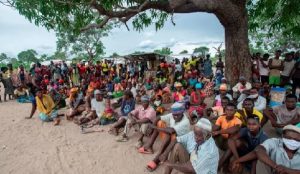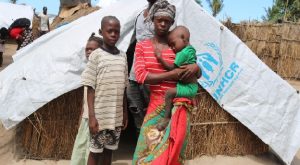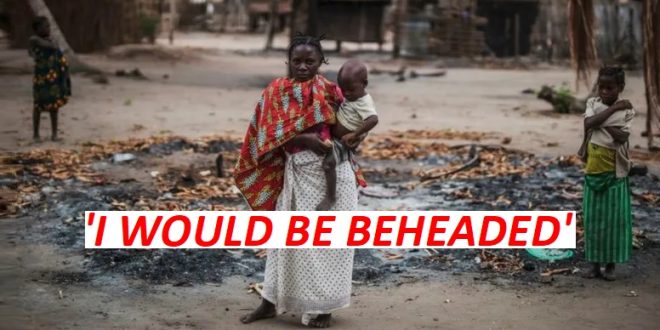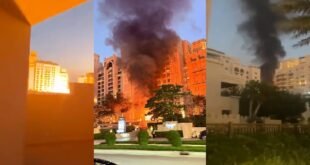18-06-2024
MAPUTO: “If (the jihadists) knew I was a government official, they would have beheaded me,” Tomas Langa, a civil servant in northern Mozambique, told media.
He feels he had a lucky escape. We have changed his named for his safety.
Woken in the early hours of 10 May by heavy gunfire, Langa looked out of his window to see four armed men standing outside his house in Macomia town in the insurgency-hit Cabo Delgado province.
 He was terrified and ran into the countryside, where he hid for three days living on cassava plants.
He was terrified and ran into the countryside, where he hid for three days living on cassava plants.
“I was lucky they only insulted me as I ran,” he said.
Fighters linked to the Islamic State (IS) group targeted government buildings and positions in the town before looting shops and warehouses.
The gunmen kept the area under siege for two days, creating an atmosphere of fear and chaos.
The jihadists raided a medical facility run by aid agency Medecins Sans Frontieres (MSF), seizing vehicles and medical supplies.
MSF said it has had no choice but to relocate staff and suspend its operations in Macomia.
Alfane Silva, a father of five, told media he was detained and interrogated by eight gunmen. Again, this is not his real name.
“They were wearing military gear and carried heavy weapons,” he said.
“They told me to run to the bush or they would kill me if I stayed in town.”
Silva said it took two days for government reinforcements to arrive, but by then the militants had already left.
More than 700 people fled this latest round of fighting in Macomia, according to the International Organization for Migration (IOM).
Those who stayed behind, like Silva and Langa, have been left with no medical facilities, no electricity, and live in constant fear of another attack.
 It was the latest resurgence of the violence that had declined as security forces, backed by troops from neighboring states, seemed to be getting the situation under control but now, many of those troops are being withdrawn.
It was the latest resurgence of the violence that had declined as security forces, backed by troops from neighboring states, seemed to be getting the situation under control but now, many of those troops are being withdrawn.
The Southern African Development Community (Sadc) mission, made up of about 2,000 soldiers from eight countries, has said it will withdraw its forces from Mozambique by 15 July, and not extend its three-year mandate.
Regional security experts have warned that this may be too early, as the area remains unstable.
Botswana and Lesotho have already pulled their soldiers out, while Angola and Namibia are in the process of leaving.
However, Tanzania, which borders the country to the north, will maintain 300 troops, reports the privately owned Zambeze newspaper, based in the Mozambican capital, Maputo. Dastan Kweka, a governance specialist in Tanzania, told media that the authorities expect security in the region to deteriorate further.
South Africa, which currently contributes more than 1,000 soldiers to the peacekeeping efforts, has said it will keep its troops in Mozambique until the end of 2024, but not as part of the Sadc mission.
On the other hand, Rwanda, which is not part of Sadc but has supported Mozambique, announced it will send an additional 2,000 troops to the country.
Rwanda army spokesperson Brig-Gen Ronald Rwivanga told the BBC that they were “simply bolstering” their strength. The decision had nothing to do with the Sadc withdrawal or recent attacks, he said. (Int’l News Desk)
 Pressmediaofindia
Pressmediaofindia




